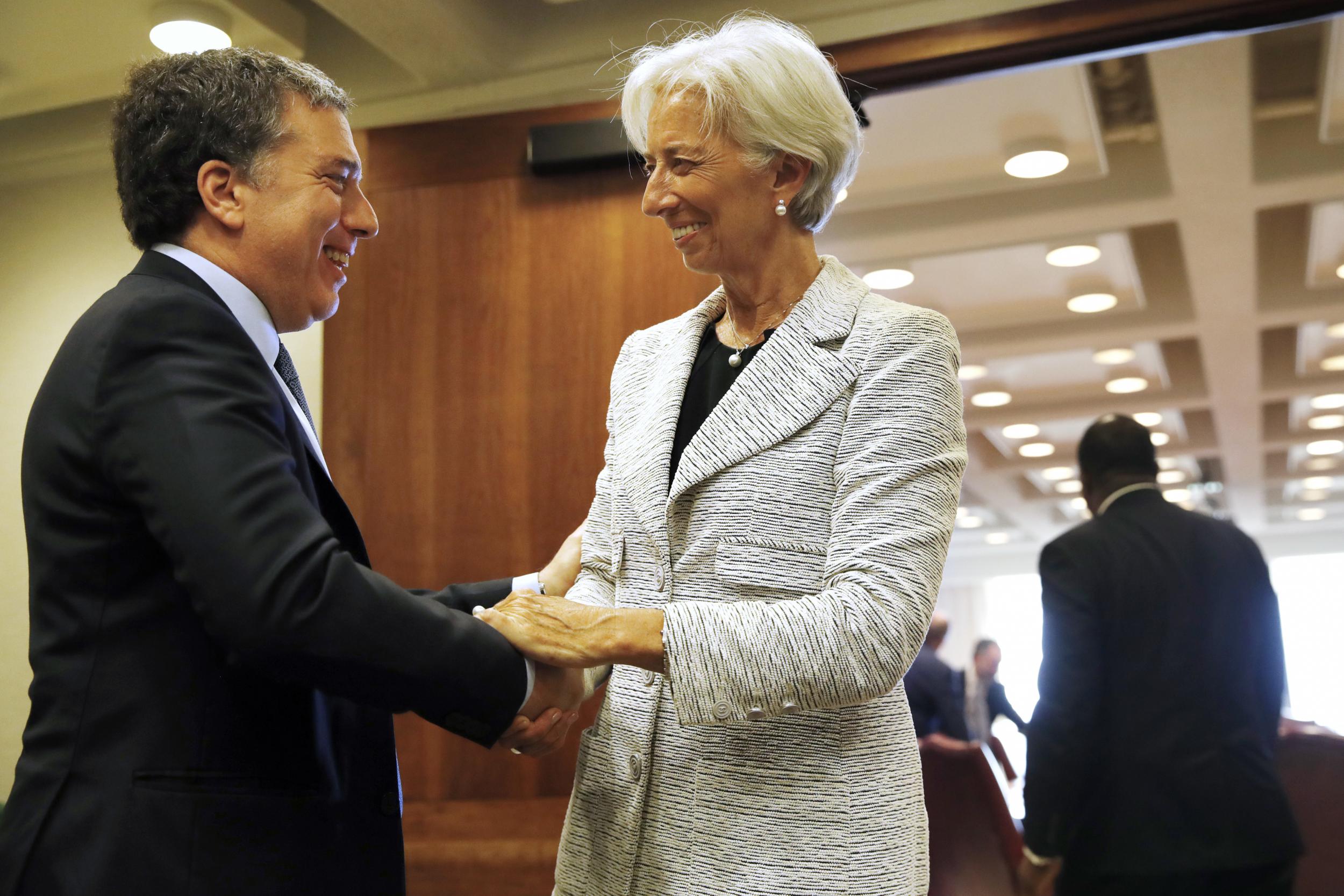IMF agrees $50bn loan for inflation-stricken Argentina
'The goals of the agreement with the IMF will mean thousands of layoffs, a lower budget for health and education, belt-tightening for the retired and labour reform'

Your support helps us to tell the story
From reproductive rights to climate change to Big Tech, The Independent is on the ground when the story is developing. Whether it's investigating the financials of Elon Musk's pro-Trump PAC or producing our latest documentary, 'The A Word', which shines a light on the American women fighting for reproductive rights, we know how important it is to parse out the facts from the messaging.
At such a critical moment in US history, we need reporters on the ground. Your donation allows us to keep sending journalists to speak to both sides of the story.
The Independent is trusted by Americans across the entire political spectrum. And unlike many other quality news outlets, we choose not to lock Americans out of our reporting and analysis with paywalls. We believe quality journalism should be available to everyone, paid for by those who can afford it.
Your support makes all the difference.The International Monetary Fund has agreed to give Argentina $50 billion in standby loans in what could be the organisation's largest rescue package amid widespread protests against the move.
The deal is aimed at strengthening the South American country's economy and helping it fight inflation.
The IMF said the staff-level agreement will be subject to approval by the international body's executive board, which will consider Argentina's economic plan in the coming days.
In Argentina, where many have criticised the government for turning to the IMF, Finance Minister Nicolas Dujovne said the funds would be available after the executive board meets on 20 June.
"The package includes an immediate withdrawal of 30 per cent, or $15 billion, and then we will see," he said at a news conference.
The terms of the arrangement include the goals of reducing the Argentine government's budget deficit by 2020 and of bringing down inflation to 17 per cent by 2019, 13 per cent by 2020 and 9 per cent by 2021, Mr Dujovne said.
Critics of the deal asked how the government will meet deficit-reduction goals without making cuts to social assistance, subsidies and employment.
"The goals of the agreement with the IMF will mean thousands of layoffs, a lower budget for health and education, belt-tightening for the retired and labour reform. In short, a series of measures against the people," said leftwing lawmaker Nicolas del Cano.
Argentina's consumer prices have been rising an estimated 25 per cent a year, one of the world's highest rates of inflation.
"I am pleased that we can contribute to this effort by providing our financial support, which will bolster market confidence, allowing the (Argentine) authorities time to address a range of long-standing vulnerabilities," said Christine Lagarde, the IMF's managing director.
President Mauricio Macri announced in May that his government was seeking a financing deal with the IMF following a sharp devaluation of Argentina's currency and a tough global economic outlook.
That decision rekindled bad memories for Argentines who blame the IMF's austerity policies then for the country's worst economic crisis in 2001, when one in five Argentines were jobless and millions were thrown into poverty.
Thousands have joined in protests against Mr Macri's move to get IMF financing as well as his government's belt-tightening measures, including the elimination of subsidies for utility rates.
IMF officials said Argentine authorities have pledged to maintain a floor under social assistance spending during the three-year duration of the programme.
Mr Macri said the deal is needed to avoid another economic implosion. The financing arrangement "is a very important starting point," he told reporters several hours before the deal was announced.
Mr Macri, a conservative who took office in 2015, has said the IMF money will allow Argentina to avoid another economic implosion and promises the deal will not harm the estimated one-third of Argentines who are poor.
The IMF forecasts that economic growth in Argentina will slow from last year's 2.9 per cent to only 2 per cent this year due to a drought that hurt agriculture production and the government's efforts to rein in inflation.
Associated Press
Join our commenting forum
Join thought-provoking conversations, follow other Independent readers and see their replies
Comments